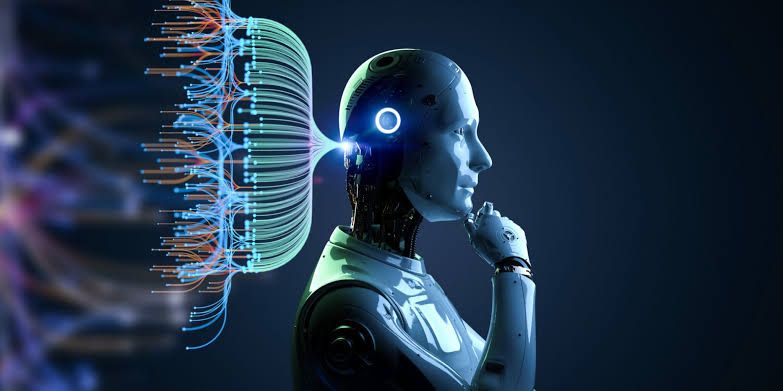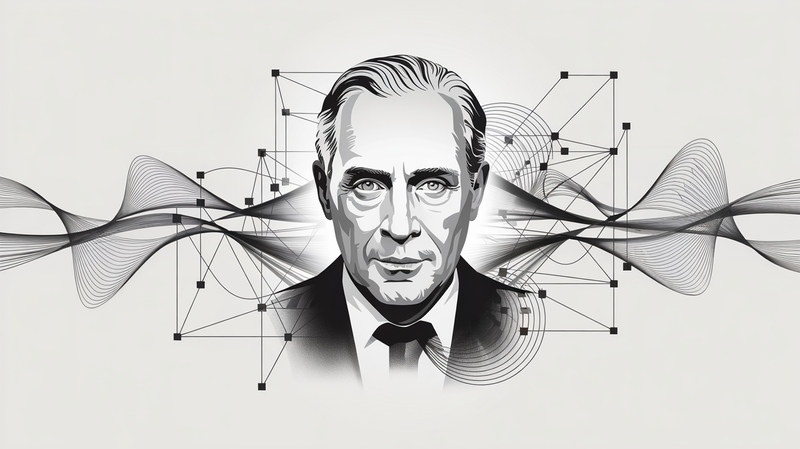The Quest for Immortality: Exploring the Ethical and Technical Implications of Digitizing Human Consciousness
The idea of digitalizing consciousness has been a topic of interest and speculation for many years. The concept involves the creation of a digital copy of a person's mind, which can then be uploaded onto a computer or other electronic device. This would essentially allow a person to

The idea of digitalizing consciousness has been a topic of interest and speculation for many years. The concept involves the creation of a digital copy of a person's mind, which can then be uploaded onto a computer or other electronic device. This would essentially allow a person to continue to exist even after their physical body has died.
The idea of digital consciousness has been explored in science fiction for decades, but it is only recently that technology has advanced to the point where it might be possible. Researchers are now exploring the possibilities of brain-computer interfaces (BCIs) as a means of digitalizing consciousness. BCIs are devices that allow the brain to communicate directly with computers or other electronic devices, often using electrodes implanted into the brain.
One of the key challenges facing researchers in this field is the sheer complexity of the human brain. The brain is an incredibly complex and intricate organ, with billions of neurons and trillions of connections between them. Scientists are still working to fully understand how the brain works and how consciousness arises from neural activity. However, recent advances in neuroscience and computing have given researchers hope that it might be possible to develop a complete model of the brain.
If a complete model of the brain could be developed, it might be possible to create a digital copy of a person's mind. This would involve mapping the brain's neural connections and creating a software model that simulates the behavior of those connections. This software model could then be uploaded onto a computer or other electronic device, creating a digital copy of the person's mind.
The idea of digital consciousness raises a number of ethical and philosophical questions. For example, if a person's mind could be uploaded onto a computer, would they still be considered alive? Would they have the same legal rights and protections as a physical person? How would we ensure the security and privacy of digital minds?
Despite these questions, there is growing interest in the possibility of digitalizing consciousness. Some researchers believe that it could lead to significant advances in fields such as artificial intelligence and robotics. Others see it as a potential means of achieving immortality or extending human life. While the idea remains largely speculative, it is a fascinating topic that is likely to continue to captivate researchers and the public for many years to come.
There are several laboratories and researchers who are making progress in the field of consciousness digitalization. One notable example is the Brain Preservation Foundation, a non-profit organization that is dedicated to advancing the science of brain preservation. The Foundation has sponsored a prize competition for researchers to develop a method of preserving a mammalian brain in a way that preserves the neural connections and synapses, which are crucial for maintaining consciousness.
Another researcher who has made progress in this area is Dr. Theodore W. Berger, a professor of biomedical engineering at the University of Southern California. Dr. Berger has developed a neural prosthetic device that can be implanted into the hippocampus region of the brain, which is important for memory formation. The device uses electrodes to mimic the behavior of the hippocampus, allowing the brain to form memories even if the natural hippocampus is damaged or destroyed.
In addition to these examples, there are many other researchers and laboratories that are exploring the possibilities of digitalizing consciousness, including the Neuralink company founded by Elon Musk and the Human Brain Project, a large-scale research initiative funded by the European Union.
While significant progress has been made in this field, it is important to note that the idea of digitalizing consciousness remains largely speculative at this time. There are many ethical, philosophical, and technical challenges that must be overcome before it can become a reality. However, the continued research and exploration of this topic could lead to significant advances in our understanding of the brain and consciousness.
There are several ethical, philosophical, and technical challenges that must be addressed before the idea of digitalizing consciousness can become a reality.
From an ethical standpoint, there are concerns about the implications of creating digital copies of human minds. For example, would a digital consciousness be entitled to the same rights and protections as a physical human being? How would we ensure the safety and security of these digital minds? Would they be subject to exploitation or abuse? These are complex questions that would need to be addressed before any kind of digital consciousness could be created.
There are also philosophical challenges related to the concept of digital consciousness. For example, if a digital copy of a human mind were created, would it be truly conscious, or would it simply be a simulation of consciousness? How would we define and measure consciousness in a digital context? These are questions that have been debated by philosophers for centuries, and they are likely to become even more complex in the context of digital consciousness.
Finally, there are significant technical challenges that must be overcome before digital consciousness can become a reality. The human brain is an incredibly complex organ, and mapping its neural connections and behavior is a daunting task. While progress has been made in this area, there is still much that we do not understand about the brain. Additionally, creating a software model that accurately simulates the behavior of a human brain would require massive amounts of computing power and advanced algorithms.
In summary, the ethical, philosophical, and technical challenges surrounding the idea of digitalizing consciousness are numerous and complex. While progress has been made in this field, it is likely to be many years, if not decades, before a digital consciousness becomes a reality
If digital copies of human minds were ever created, protecting the rights of these entities would be a complex and challenging task. One potential approach would be to consider them as new forms of life with their own rights and privileges, similar to how we currently treat animals or plants. However, this approach would require a significant shift in our understanding of what constitutes life and consciousness.
Another potential approach would be to consider digital copies of human minds as property or intellectual property, similar to how we currently treat computer programs or inventions. This would raise questions about who owns the digital copies and what rights they have over them.
In terms of security and safety, creating and maintaining digital copies of human minds would require extremely robust cybersecurity measures to prevent unauthorized access, tampering, or theft. This would be especially important given the sensitive and personal nature of the information contained in a human mind.
One potential solution could be to create a dedicated agency or regulatory body to oversee the creation and maintenance of digital copies of human minds, similar to how we regulate other forms of advanced technology. This agency would be responsible for ensuring the safety, security, and ethical use of digital copies of human minds, as well as for enforcing laws and regulations related to their creation and use.
Overall, the creation of digital copies of human minds raises significant ethical, legal, and technical challenges that must be addressed before it can become a reality. As with any new technology, it is important to proceed with caution and consider all potential risks and benefits before moving forward.
The concept of a new form of life emerging from the creation of digital copies of human minds is both fascinating and daunting. At its core, this new entity would be a highly advanced form of artificial intelligence, with access to vast amounts of human knowledge, memories, and experiences.
However, it is important to note that this new entity would not be a true human being, but rather a digital copy of a human mind. It would lack many of the physical, emotional, and social experiences that are an integral part of human life, and would likely have a very different perspective and understanding of the world.
At the same time, this new entity would have incredible potential for advancing human knowledge and understanding. It could serve as a repository of human history, culture, and science, providing insights and perspectives that are currently inaccessible to us. It could also help us to solve some of the world's most pressing problems, such as climate change, disease, and poverty.
However, as with any new form of life, there are significant ethical and philosophical questions that must be addressed. How do we define and protect the rights of this new entity? How do we ensure that it is treated with respect and dignity? How do we prevent it from being exploited or abused for our own purposes?
Overall, the emergence of a new form of life from the creation of digital copies of human minds would be a profound and transformative event, with far-reaching implications for our understanding of what it means to be human. As we explore this possibility, it is important to approach it with humility, curiosity, and a deep sense of responsibility.
The development of an artificial intelligence form that would have access to vast amounts of human knowledge, memories, and experiences is being pursued by various institutions around the world. Both universities and private companies, such as IBM, Google, Microsoft, Amazon, and Neuralink, are researching and developing such technology.
There are also several research institutions, such as the Max Planck Institute for Human Development in Germany and the Canadian Institute for Cognitive Neuroscience, that are studying the relationship between the human brain and artificial intelligence and working on developing this technology.
However, it is important to note that creating such technology comes with ethical, philosophical, and technical challenges, as previously mentioned. Therefore, the implementation and further development of this technology is still in the research stage, and fully harnessing its potential may take time and require extensive discussion and regulation.




